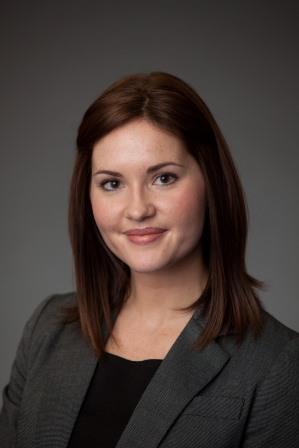Meranda Jem Collins McLaughlin
1) What is your official current position and title?
I am a Policy and Research Analyst at the Maritime Provinces Higher Education Commission (MPHEC) and a (part-time) graduate student at the University of New Brunswick (UNB).
2) What is your educational background?
I obtained my Bachelor of Arts degree (Major in History, Minor in French) from St. Thomas University and I am now enrolled in the Master of Philosophy (MPhil) in Policy Studies at UNB. My thesis, which is the final requirement of my degree, is nearly complete. It is entitled: “An Examination of University Policies and Processes for addressing Sexual Harassment among Students.”
3) Talk a little about your career path? Where did your passion for the research/work that you do originate and how did it develop?
Before working at the MPHEC, I had never considered that graduate studies might be for me. But the more time I spent as a Junior Policy and Research Analyst, the more passionate I became about research, social policy, and higher education. Not wanting to leave my position at the MPHEC, I decided to pursue an MPhil in Policy Studies on a part-time basis. From then on, my policy-related endeavors have been informed by a combination of my professional and academic experiences, which prepared me to conduct an independent policy study for my thesis.
4) Tell us about one or two of your current projects?
My master’s thesis is focused on university policies and processes for addressing sexual harassment (SH) among students. In my research, I found that universities in the Maritime provinces have policies that advocate the use of mediation in response to cases of SH, including sexual assault. However, these policies are inconsistent with literature on the subject that warns of the challenges and even the dangers of using mediation in SH cases, given the documented disadvantages for victims. In light of this apparent disconnect between university practices and scholarly research, I chose SH mediation in universities as the focal point of my study. I was able to interview key informants (e.g., Equity Officers, Harassment Advisors) who shared their experiences and perspectives on policies regarding SH mediation at their universities. In combining feedback from key informants with my extensive research in this area, I am able to identify strengths and weaknesses with current practices and identify recommendations for policy improvements. While my study focuses on the Maritime provinces, the lessons learned can be applied at any university offering mediation in SH cases.
5) How do you see your research/work in terms of possibly contributing to evidence-based public policy?
In interviews with key informants, I asked them to explain decision-making processes during policy developments or modifications. In particular, I was interested in learning about what evidence supported the inclusion of mediation as an option for addressing SH cases. In the end, I learned that few were aware of any evidence to support such an offering (and that some even opposed this practice). In addition, I found that most universities are not collecting feedback from policy users to gauge how well these processes are working. I hope that my thesis will demonstrate how existing research can be used to support key policy revisions and to identify where additional evidence is needed to help universities make difficult policy-related decisions.
6) Discuss any past achievements that were significant to your professional path? Have any contributed to the promotion of evidence-based public policy?
The past couple years have been extremely busy and tremendously rewarding. With every new opportunity to act as a presenter or panel member, I have met inspiring new people and learned about the impressive work they do to support positive social change. Often times, the most impressive of these individuals are those involved in both conducting research and transforming that research into action. The NBSPRN embodies that mentality of research to action, which is one of the many reasons I feel so fortunate to be a member of this organization. I also thoroughly enjoyed the Network’s Research2Impact event last year, where my group’s research pitch won first prize. In preparing our pitch, we were able to meet with a variety of government and university experts who challenged our ideas and coached us through developing an effective research pitch. This experience was both informative and confidence-building – I’m so glad I took part!
Since then, I’ve had opportunities to act as a speaker or panel member for other local organizations, such as the Muriel McQueen Fergusson Centre, Fredericton Sexual Assault Crisis Centre, University of New Brunswick and St. Thomas University. These have been excellent opportunities to discuss findings from my research and to advocate evidence-based policy development. More recently, I wrote an article on reports of sexual assault across Canadian universities for the Academica Group Forum. My piece supports a critical examination of sexual assault statistics and makes specific recommendations for additional research in that area. In the coming months, I have the honour of contributing to the NBSPRN’s 2015 NB Policy Research Forum in Moncton and the Canadian Association for the Prevention of Discrimination and Harassment in Higher Education’s national conference in Toronto. In both cases I will have the opportunity to discuss the findings from my research and promote policy revisions that are supported by empirical evidence.
7) Describe in a couple of sentences your involvement with NBSPRN and how your relationship with the Network has contributed to your research/work and/or to social/economic policy?
I have been a member of the NBSPRN for a little over a year. My interactions with the Network have been extremely positive, both in terms of meeting individuals who are passionate about evidence-based public policy and in terms of broadening my understanding of decision-making processes in the public sector. I look forward to continued collaboration with this essential group.





